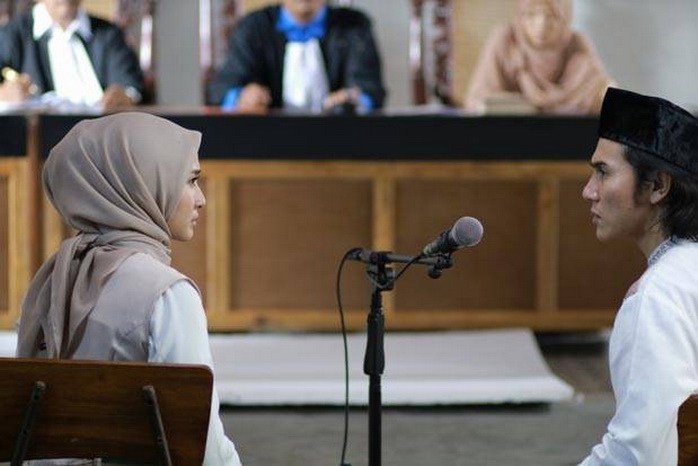Misogynistic Issues: Hadith of Women’s Leadership
Majalahnabawi.com – This modern era raises the dynamics of civilization which is quite interesting to be studied by muslim scholars in general. One issue that is quite hotly debated is related to misogynistic hadith.
Misogynist itself can be defined as hatred of women. Misogynistic Hadith means those Hadiths that are hateful towards women and that demonize women. As we know, hadiths are the second source of Islamic law after the Qur’an, whether in the form of the Prophet’s words, deeds, decrees, or characteristics.
Could the Prophet Hate Women?
The question now is, is it possible for the Prophet saw as a prophet and messenger of a peace-loving religion to be misogynistic? Or are they just misunderstanding the Prophet’s hadith?
Consequently, hadith that seem to hate and discredit women are accused of being misogynistic and considered as dhaif (weak) or even maudhu’ (false) hadiths, even though the hadiths are already contained in the Sahih al-Bukhari which is recognized as the second most authentic book after the Qur’an. How does it go? Let’s discuss it over coffee!
The Prophet himself, if anyone understands him to be misogynistic (hating women), this is impossible and there is no hadith that shows that any of the Prophet’s words, deeds, and decrees show hatred towards women, unless it is really a maudhu’ hadith.
Eliminating Sahih Hadith for Thinking of Hating Women
What is astonishing is the understanding of Fatima Mernissi (the first muslim feminist who raised the issue of misogynistic hadiths), in her book The Veil and Male Elite, she assumes that there are misogynistic hadiths in Islamic literature and they should be eliminated from Islamic literature, even if they have been confirmed to be from the Prophet (Sahih).
This means that Mernissi indirectly eliminates hadiths that she considers misogynistic, even though they are found in valid sources such as Sahih al-Bukhari and Sahih Muslim.
Hadiths on Women’s Leadership
One of the hadiths that are considered misogynistic is related to women’s leadership. This hadith reads:
عن أبي بكرة قال لقد نفعني الله بكلمة أيام الجمل لما بلغ النبي صلى الله عليه وسلم أن فارسا ملكوا ابنة كسرى قال لن يفلح قوم ولوا أمرهم امرأة
“Abu Bakrah said: During the days of the battle of Jamal, I had learned a lesson from the message of the Prophet, precisely when he knew that the Persian kingdom appointed Kisra’s daughter as king, he immediately said: It will not be good for a people to appoint a woman as the leader of their affairs.” (HR. al-Bukhari).
If we understand it textually, it is true that the above Hadith seems misogynistic as Mernissi understands that women are not allowed to be leaders. Fatima Mernissi herself has deep suspicions regarding the above hadith.
Therefore, she asked several questions about the hadith, namely who was the first narrator of this hadith, where, when, why and to whom was this hadith narrated? These are the epistemological questions that Mernissi asked regarding the above hadith.
Tracing Abu Bakrah As a Narrator
If we look at the hadith’s chain of transmission then Abu Bakrah was the first person to narrate this hadith from the Prophet. Some information from and about him is very important as a source of information about this hadith. Abu Bakrah himself testified that the reason why the Prophet said this hadith was after knowing that after the death of Kisra, it was Kisra’s daughter who led the Persians.
Starting from this information, Mernissi then traced further the history of the Persians, especially those closely related to the information from Abu Bakrah.
In 628 AD, the Roman Emperor Heraclius invaded Persia and occupied Ctesiphon which was located very close to the Sassanid capital, at which time Khulasraw Pavis, the Persian king was killed. After that, Persia went through a period of turmoil especially after Khusraw’s son died. In this situation, many people claimed the right to the Sassanid throne, including two women.
The last part of the historical record that Mernissi suspects is closely related to Abu Bakrah’s statement at the beginning.
It seems that the camel war in which ‘Ali’s troops defeated ‘A’ishah’s troops and many muslims died reminded Abu Bakrah of the hadith about women’s leadership. It was in this context that Abu Bakrah narrated the hadith about women’s leadership that the Prophet had said.
Examining Abu Bakrah’s Credibility
As for the assessment of Abu Bakrah’s credibility, Mernissi differs from the classical Hadith reviewers. The Companion status attached to Abu Bakrah did not deter Mernissi from investigating him. Mernissi goes on to state that a number of hadith experts have been suspicious of Abu Bakrah’s paternal lineage from the beginning because it is not very convincing (unclear).
Caliph Umar bin al-Khattab once punished Abu Bakrah for giving false testimony in had qadzaf. For the second factor, Mernissi returns this case to the rules that have been built by the fuqaha, specifically Imam Malik regarding the validity of a hadith narrator.
It states that Imam Malik rejected any narrator of hadith who had lied, even in the simplest case of lying to his neighbor in everyday life even if it was not related to religious knowledge. Based on this rule, Mernissi concludes that Abu Bakrah is a rejected narrator and his hadiths cannot be accepted.
In fact, according to the hadith experts themselves, the hadith narrated by Abu Bakrah is a saheeh hadith, both in terms of its sanad and matan. In general, scholars of hadith such as Abu Hazm and Muhammad al-Ghazali, after takhrij research, agree on the validity of the hadith about women’s leadership narrated by Abu Bakrah, both the sanad and the matan, as well as in the book Fath al-Bari which mentions the hadith a lot.
Examining the Truth
Some hadith critics criticized Mernissi’s understanding of the narrator Abu Bakrah. They explain; it is a fact that Abu Bakrah was flogged by Umar bin Khattab for his alleged false testimony in had qadzaf.
Actually, Abu Bakrah did not give false testimony, but he lacked witnesses in had qadzaf. As we know, the witnesses required in the case of seeing another person commit adultery are four witnesses. While Abu Bakrah lacked witnesses, so he accepted the consequences of being flogged by Caliph Umar. Thus, Mernissi’s accusation is rejected by this truth.
Matan Criticism
Indonesian Muslim feminists, in understanding this Hadith, express different statements. Husein Muhammad states that the Hadith is expressed in terms of notification or information, not in terms of legal legitimization. Therefore, this hadith cannot be understood as it is, but must be understood from its essence and cannot be generalized to all cases because this hadith is specific to the case of the Persians.
Because in fact at that time the Persian nation was on the verge of destruction and when led by a woman who did not have the capability and power leadership, finally the Persian kingdom was completely destroyed.
As for the current context, it is not a problem for a woman to become a leader, as long as she has the capability, skill, power, and various elements that support her becoming a leader. This means that the correct understanding of the hadith must be understood contextually and not textually.







